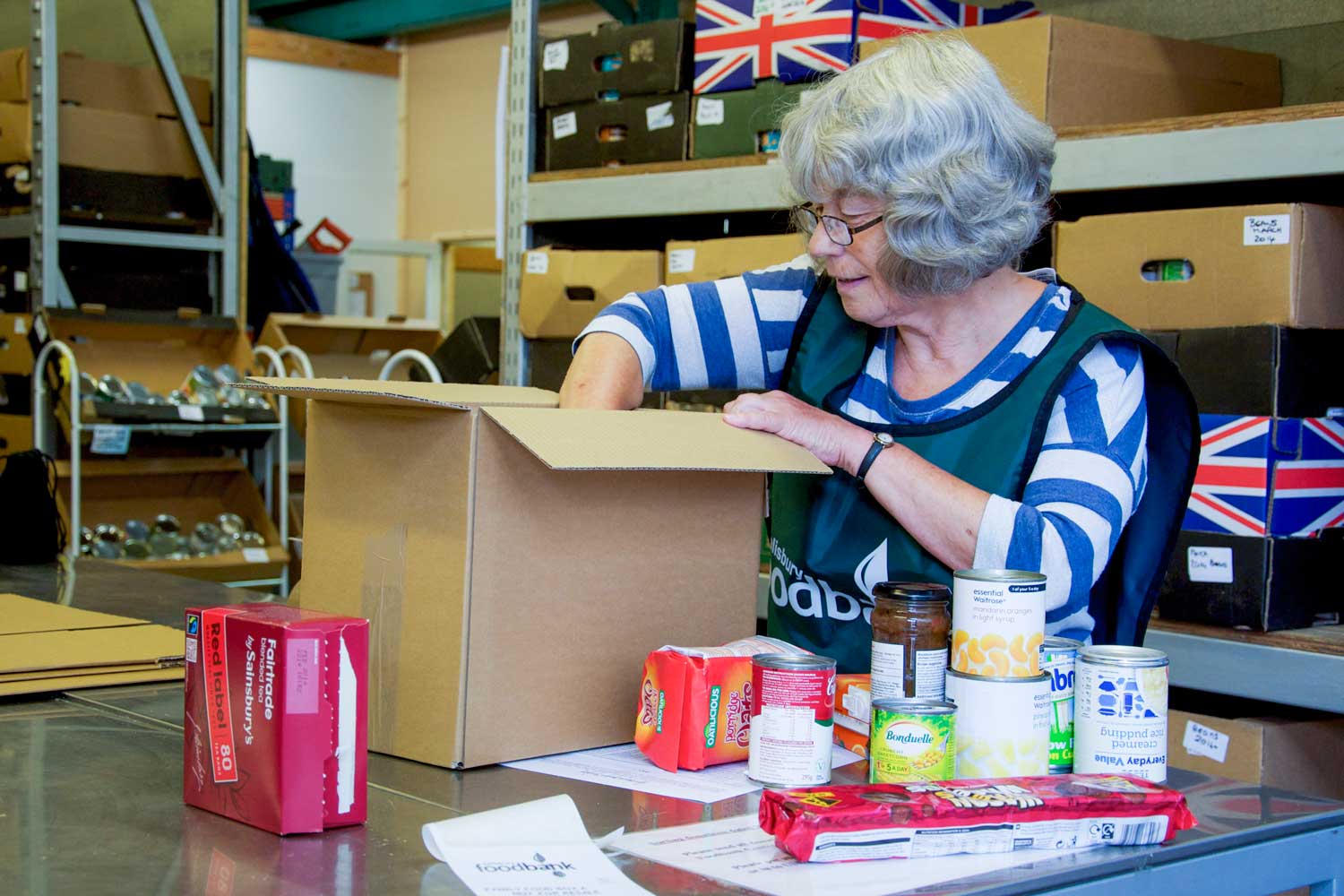I don’t want to question the fact that Mr Littlejohn has a job to do, and that job happens to be a columnist, and that being a columnist happens to require the ability to write to extremes.
Neither do I have the time or inclination to defend myself or other (female) foodbank volunteers who were on the sneering end of Mr Littlejohn’s typing finger today. I’d hazard a guess that most volunteers actually couldn’t give a whistle what Mr Littlejohn thinks of us; we just think it’s important to help out our neighbours who are struggling.
(Readers may also be shocked and amazed to know that men (yes, men!) also volunteer at foodbanks across the country, as well as people of all income streams and none, plus previous foodbank guests who come back to help out).
What I do want to question, however, is the publishing of one more reality-ducking opinion piece which – deliberately or accidentally – adds to the humiliation and shame that many of our guests feel as they walk through the foodbank door.
No matter that people have been referred to foodbanks by their GP, or child’s teacher, or JobCentrePlus advisor because they are without means to buy sufficient food for themselves and their family.
No matter that they’ve exhausted every avenue that they can humanly think of, from working two jobs, to borrowing from friends and family, to going without food themselves so there’s enough left to cook tea for their kids.
The questioning again that hunger and poverty is not a reality in the UK in 2015, or that it is a fabrication of left-wing politics, is both inaccurate and demonising – adding to the false narrative that anyone who doesn’t have income for enough food, or rent, or gas and electricity, or school shoes for the kids, must have only themselves to blame.
In reality, thousands of people are referred to foodbanks across our towns and cities because a run of life-shocks (redundancy, illness, domestic violence, problems with benefit delivery to name but a few) have exhausted their resources – often little to begin with – and propelled them into crisis and to the foodbanks’ door.
These are not people who’ve decided that coming to the foodbank is a ‘lifestyle choice’, or a fun thing to do on a Friday morning. These are people who’ve walked up and down outside five times plucking up courage to come in, who are in tears as they say “I can’t believe it’s come to this”.
These are people like the gentleman who needs regular food because he’s diabetic, but has had no income since being made redundant from his low-paid agency job five weeks previously. These are people like the lady who is still waiting for the first payment of an out-of-work sickness benefit that she applied for four months ago; people who have paid tax and National Insurance all their lives until they suddenly became ill, who have used up all their savings, and now have to ask for help.
I know this because I met these people this morning at the Foodbank. And it was an absolute privilege to welcome them, to give them good quality food and toiletries, to help them apply for the local council’s welfare assistance fund, and to refer them to our in-house Citizens Advice advisor to help resolve their crisis.
These are people you wouldn’t recognise on the street as Someone Who Goes To A Foodbank. In reality, such a person doesn’t exist. In reality, foodbanks help people from all walks of life who, just for that moment in time, need someone to stand with them until they’re on their feet again.
But don’t just take my word for it. Robust data and experience from the other 400 foodbanks in The Trussell Trust’s network paint the same picture; as does evidence from many excellent independent foodbanks quoted in the recent APPG report ‘Feeding Britain’.
At our foodbank, we recently asked our 190 Voucher Partners (local care professionals who refer their clients to us) what would happen if the foodbank didn’t exist.
Almost half (47%) said that their clients would go hungry or skip meals. One in five cited an impact on mental health (particularly mentioning anxiety, depression or stress), and a further 6% mentioned suicide or ‘fatality’. A fifth said that children or the most vulnerable would be particularly impacted.
Here are just two of the many quotes frontline care professionals fed back to us:
“Many are in desperate circumstances and need the foodbank to literally survive. If they did not have the foodbank or support from agencies such as ourselves they would be at risk of destitution.”
“The need for foodbank services is great – we are seeing an increase in the numbers of families in need, the impact of not having access to a healthy diet can have far-reaching implications on a child’s physical development and on the mental health of parents struggling to provide for their families.”
So please, Mr Littlejohn, do carry on firing off conversation-starters – it is your job. But please don’t pretend that hunger and poverty are not real, right here, right now. And please think twice before using your words to make people already feeling ashamed and embarrassed, feel even worse.
Sarah Chapman, Wandsworth Foodbank volunteer
This piece was originally published on HuffingtonPost.co.uk on 11 September 2015.



